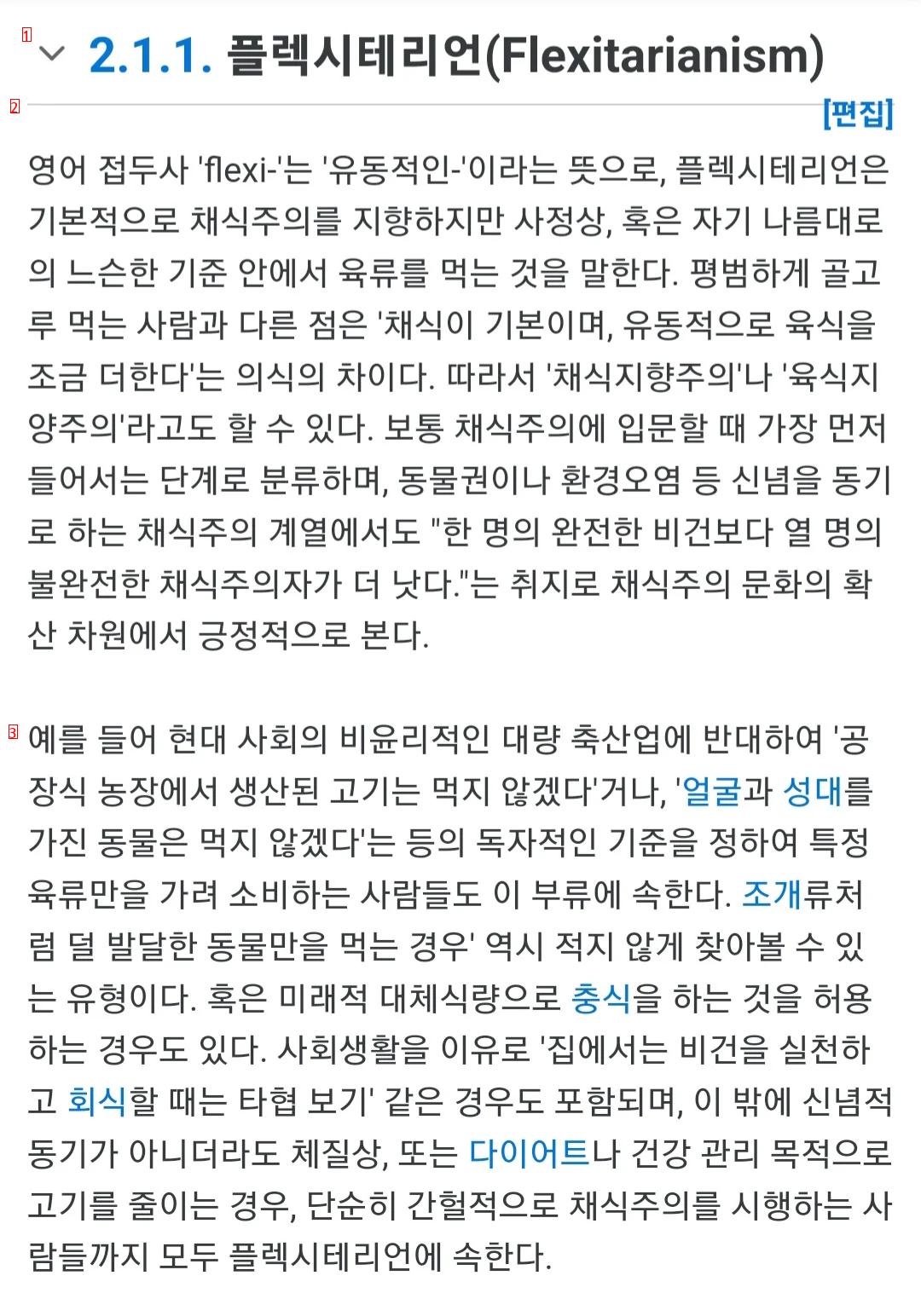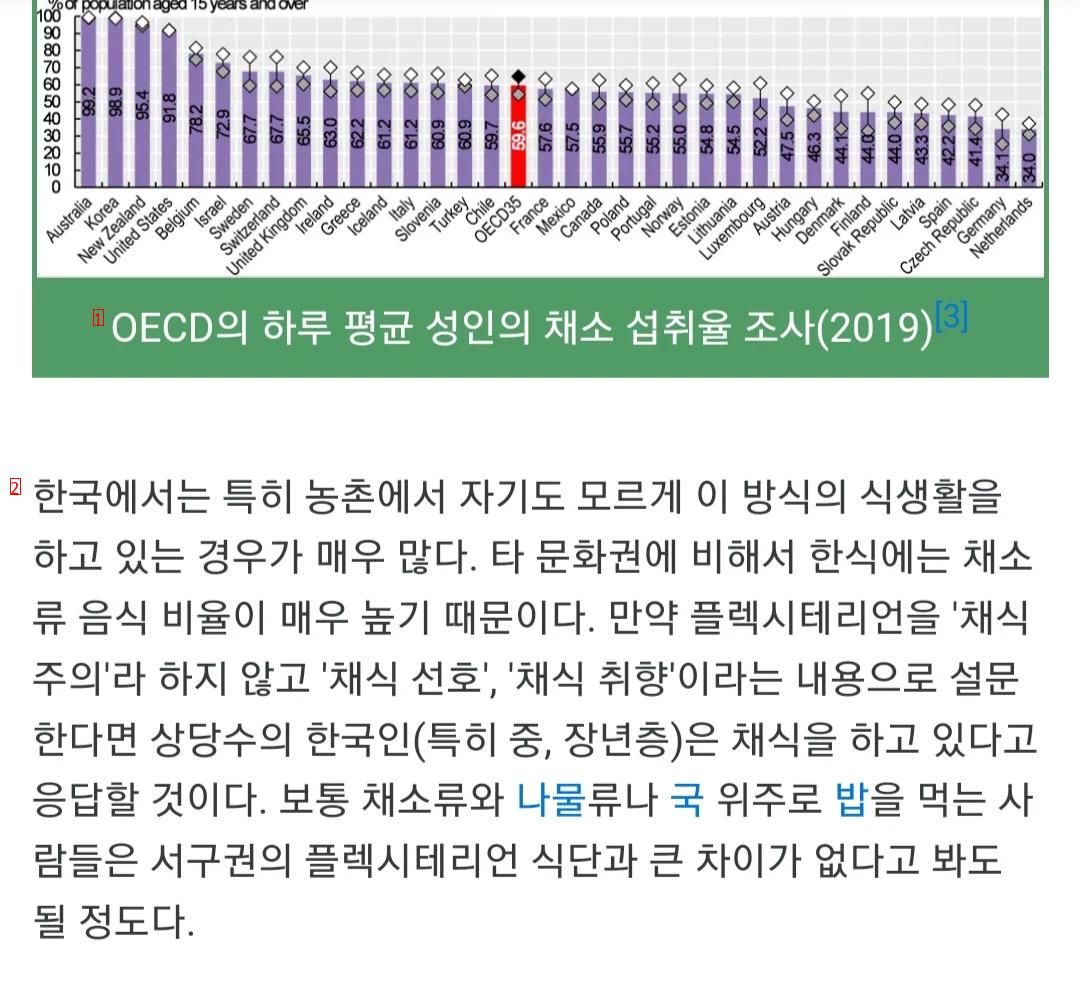
image text translation
(1)~ 211 Flexitarian Flexitarianism
(2)Edit The English prefix flexi-means flexible-Flexitarian is basically vegetarian, but it refers to eating meat within its own loose standards or circumstances The difference from ordinary people who eat evenly is that vegetarianism is the basic and the difference in the consciousness of adding a little more meat flexibly, so it can be said to be vegetarian-oriented or carnivorous It is usually classified as the first step to enter vegetarianism, and even in the vegetarian community, which is motivated by beliefs such as animal rights and environmental pollution, 10 incomplete vegetarians are better than one complete vegan
(3)For example, I would not eat meat produced on factory farms in opposition to the unethical mass livestock industry in modern societyPeople who consume only certain meat by setting their own standards, such as not eating animals with faces and vocal cords, also belong to this category. Eating only less developed animals such as shellfish is also a type that can be found, or allowing them to eat insects as future alternative food For social reasons, people who practice veganism at home and eat out include compromise, and even those who reduce meat for physical, diet, or health care purposes, even if they are not religious motives, belong to flexitarians
(1)OECD Survey on Average Daily Vegetable Consumption of Adults 2019
image text translation
(2)In Korea, especially in rural areas, there are many cases of eating this way without realizing it, because the proportion of vegetables in Korean food is very high compared to other cultures If you don’t call flexitarians vegetarian, but survey them as vegetarian preferences, a considerable number of Koreans, especially middle-aged people, will respond that they are vegetarian It can be said that people who usually eat vegetables, laver, or soup are not much different from the Flexitarian diet in the West
a flexitarian
In the West, where meat is mainly meat, it is classified as an introductory vegetarian stage just by eating vegetarian food and eating meat from time to time
In Korea, where vegetarian dishes are developed, that type of diet is very common
In particular, many middle-aged and older people can be called flexitarians, but at this age, they are often reluctant to eat meat because of indigestion
It is also this type of vegetarianism to eat out at a meat restaurant once or twice a week after rarely eating meat side dishes in the usual diet